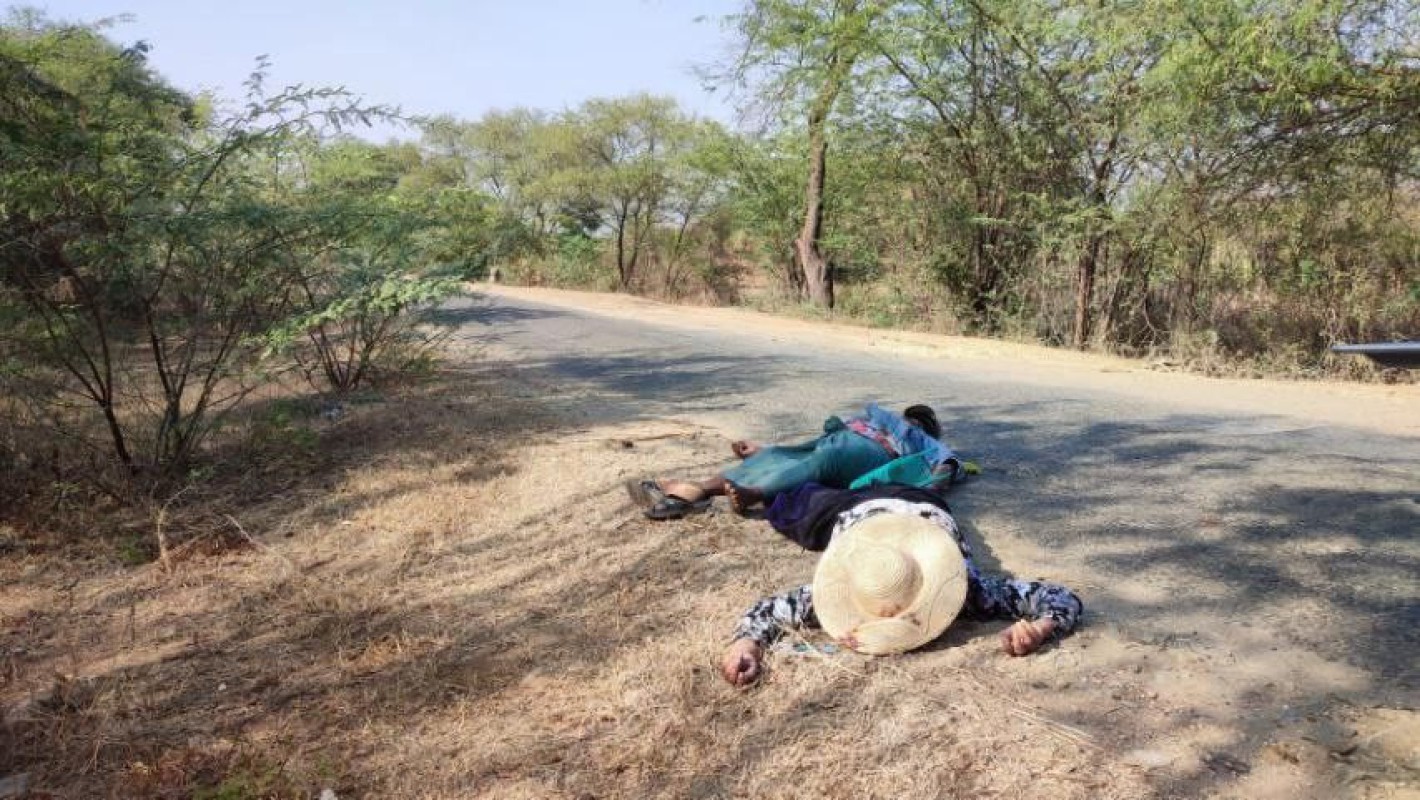Unmasking lawless violent acts of NUG, PDF

411

Phyo Lin Aung (NP News) - Feb 25
Myanmar, a country with numerous armed groups, has ever been at the center of complex and cyclical conflicts. In addition, such armed groups usually rule with their own discipline, and each operates on its agenda. They are self-styled judges and occupy their territories, exercising judgment over them in absolute impunity and in most cases indulging in lawless acts. Especially during crises, organizations like the People's Defense Forces (PDF) and the National Unity Government (NUG) have been in the international spotlight, playing the roles of revolutionary forces. However, over time, their legitimacy and actions have been questionable.
Lawless actions by the PDFs that cover-up as revolutionaries, have escalated over the years. Their violent acts, typically the killing of government officials, have become routine and have been heard from various regions of the country. They justify their violent acts in terms of "dalan" – meaning informants who allegedly sell information to the government, perceiving that what they do is fair and just. They view their violent campaigns as part of a broader struggle for justice, even though these actions often blur the lines of legality and morality.
In the past few days, there have been reports from Yangon Region’s Dala Township of enumerators for elections being set on fire by urban terrorists, who poured gasoline on them. People are commenting on reports of brutal acts is problematic. Instead of condemning the cruelty or violence, their remarks appear to support, justify, or even encourage it—whether intentionally or unintentionally. This disturbing trend raises serious questions about the rule of law in Myanmar.
Furthermore, the number of Buddhist monks and spiritual leaders brutally killed without solid reasons has also been on the rise. Over 100 Buddhist monks have been killed between 2021 and 2024. This illustrates that even Buddhist monks, who were once regarded as holy and untouchable figures in the country, have not escaped the violence.
Moreover, within the PDF organization and among innocent citizens, there have been cases of unlawful torture, harassment, and brutality, including abuses committed against women and brutal killings. These acts of violence seem to surface when the PDF organization is at a stage where its actions can no longer be hidden. Every time such incidents emerge, the NUG tends to make announcements promising to take action, ensuring that they will take severe action against them. They insist that individuals involved in such acts and crimes will be arrested and held accountable. However, in reality it is not known if ever such assurances are followed up on because one does not know that anything practical is actually being done.
When questions were raised about the NUG’s rule of law, a similar incident occurred on the evening of February 14. Around 9 PM that day, a group of approximately ten members of the Shwebo PDF broke into the Catholic Church in Kangyitaw village, located between Shwebo and Kyaukmyaung towns in Sagaing Region. They attacked and killed the Catholic priest inside the church. Ten attackers who were implicated in the murder were arrested and held by the Shwebo District PDF unit (5), as reported.
In response to such acts of violence, the Catholic Bishops' Conference of Myanmar's Archbishop, Cardinal Charles Bo, called for justice and accountability by requesting the perpetrators of the act to face the outcomes of their action. He gave immense importance to preserving justice and accountability while addressing such acts of violence, especially when such violence is committed against religious leaders and religious communities.
During the PDF’s so-called revolutionary era, over a hundred Buddhist monks have been killed by the PDF, and the killing of a Christian priest by the PDF is the first of its kind. What is particularly disappointing is the way these killings have been responded to. When the monks were killed, some groups remained silent. However, when the PDF killed a Christian priest, it drew widespread attention to the group’s violent actions.
The issue was compounded further when the Shwebo District PDF unit (5), who arrested the perpetrators, failed to thoroughly investigate and enlighten on the matter. Instead, they seemed to cover up the killing and allow the narrative to be twisted, giving little or no transparency. More concerning is that, in the Christian priest's execution, the lack of clear and obvious justice from the NUG and PDF, combined with media outlets complicit in hiding the truth, suggests the incident could be erased without actual accountability.
As of the available data from 2021 to the present, armed revolutionists—emerging as a by-product of the Spring Revolution—have been responsible for the deaths of over 6,000 unarmed civilians, including Buddhist monks.
It is time to highlight the violent actions of the NUG and PDF on the international stage. Over time, their so-called revolution has turned into lawless, self-centered actions. These kinds of actions are unjustifiable, and it is clear that their original objectives have strayed from the path they once claimed to follow. The international community must hold these groups accountable, as such violence undermines any legitimate claims for justice and democratic change. The failure to act on these issues will only perpetuate the cycle of violence and injustice, allowing Myanmar to remain trapped in a state of perpetual conflict and instability.